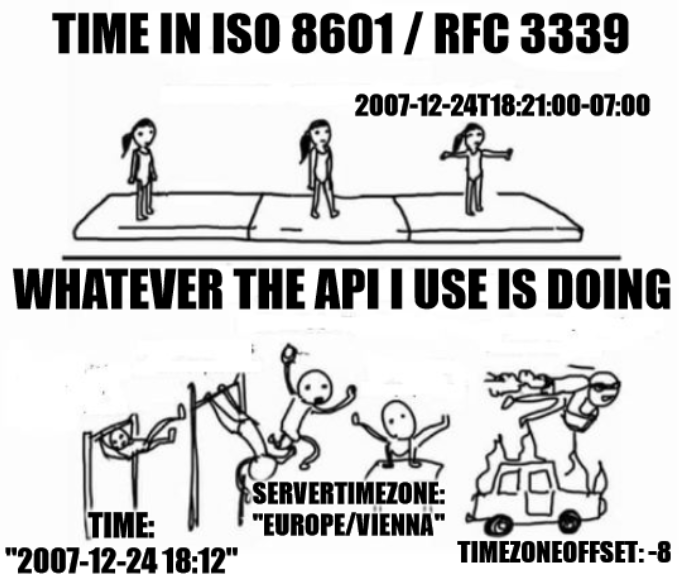this post was submitted on 08 Jul 2024
697 points (98.5% liked)
Programmer Humor
19648 readers
2651 users here now
Welcome to Programmer Humor!
This is a place where you can post jokes, memes, humor, etc. related to programming!
For sharing awful code theres also Programming Horror.
Rules
- Keep content in english
- No advertisements
- Posts must be related to programming or programmer topics
founded 1 year ago
MODERATORS
you are viewing a single comment's thread
view the rest of the comments
view the rest of the comments

What you're proposing is literally time zones but without shifting the actual clock, you still end up with all the issues and you remove the link between the hour of day and the sun's position for people lol
Plus who gets to decide that everyone switches over and what is the new global time?
Yes, this is literally what I’m proposing.
You do not still end up with the same issues. Somebody booking a ticket for a hotel room to be available at 1300 from a different time zone than said hotel will not arrive at the hotel to learn that the check in time is different from their expectation.
Regarding “the link between the hour of the day and the sun’s position,” I’m asserting that we should recalibrate this expectation based on time zones, rather than changing the clock to some fictitious time based on “noon” always equaling “1200.”
“Global time” in this context is already decided to be UTC. And no one gets to decide on the switch. This is a dream that will never come to fruition. 😕
You're saying that in the U.S. you enter your office on Monday and exit on Tuesday?
Yes. Many people already work shifts that have them do exactly that (show up to work on Monday, go home on Tuesday).
My first job had me work all sorts of shifts. Anything other than the day shift, I was showing up early or late evening one day, and leaving work early or late morning the next day.